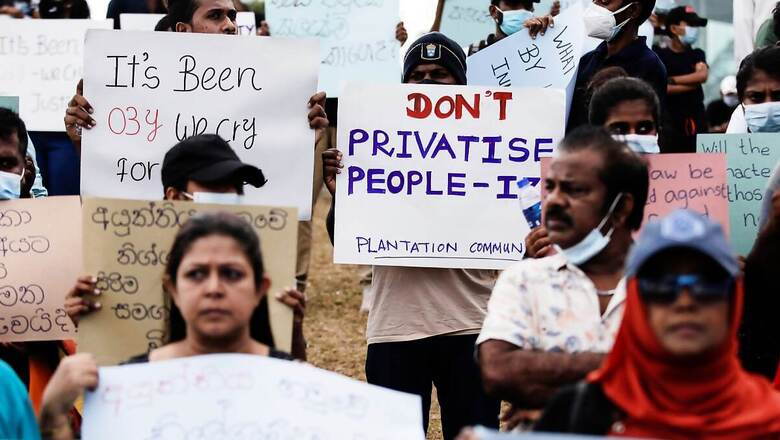
views
The leader of the opposition in the Sri Lankan Parliament on Monday urged the government to disclose the details of Indian intelligence pre-warning for the 2019 Easter bombings.
Sajith Premadasa, the main opposition leader in Parliament, questioned the government on the sequence of the pre-intelligence warnings issued by India ahead of the 2019 coordinated suicide bombings that left 270 persons dead, including 11 Indians. The bombings, carried out by the National Thawheed Jamaat (NTJ), a local jihadi group, targeted churches and Colombo star-class hotels.
“Tell us how many times Indian intelligence warned on the attacks, which were the dates when the information was provided? Who had deleted the WhatsApp messages sent by the Indian intelligence counterpart agencies to local intelligence,” Premadasa asked.
The Indian intelligence had given clear details to the Sri Lankan intelligence on the attacks, Premadasa said. “I asked the government how many probes were carried out and what were their recommendations,” Premadasa said, accusing the local intelligence officials of having links with some of the suicide bombers.
He accused ousted president Gotabaya Rajapaksa, Premadasa’s rival in the 2019 presidential elections, of taking advantage of the Easter Sunday bombings to win the polls in the past. Premadasa said that Gotabaya had pledged to probe the attack but transferred 31 officials who were conducting the investigations.
Nine suicide bombers belonging to the local Islamist extremist group NTJ linked to ISIS carried out a series of devastating blasts that tore through three Catholic churches and as many luxury hotels on April 21, 2019, killing nearly 270 people, including 11 Indians, and injuring over 500.
The attacks led to a significant political change in Sri Lanka. It emerged that the then authorities had ignored prior intelligence on the attack by Indian intelligence agencies. However, the timing of the bombing ahead of the 2019 presidential election was the subject of conspiracy theories which suggested that the Rajapaksa brothers then in opposition had taken political advantage of the attacks.
Sirisena, 72, who had denied any knowledge of the attacks, was the president at the time of the attack. Sirisena was accused and found guilty in a special presidential panel he appointed as the country’s president. The findings blamed him for inaction on the prior intelligence received on the attacks. Later, he was ordered to pay Sri Lankan Rs 100 million to the relatives of the victims of the attack as compensation. He has so far paid only a part of it.

















Comments
0 comment